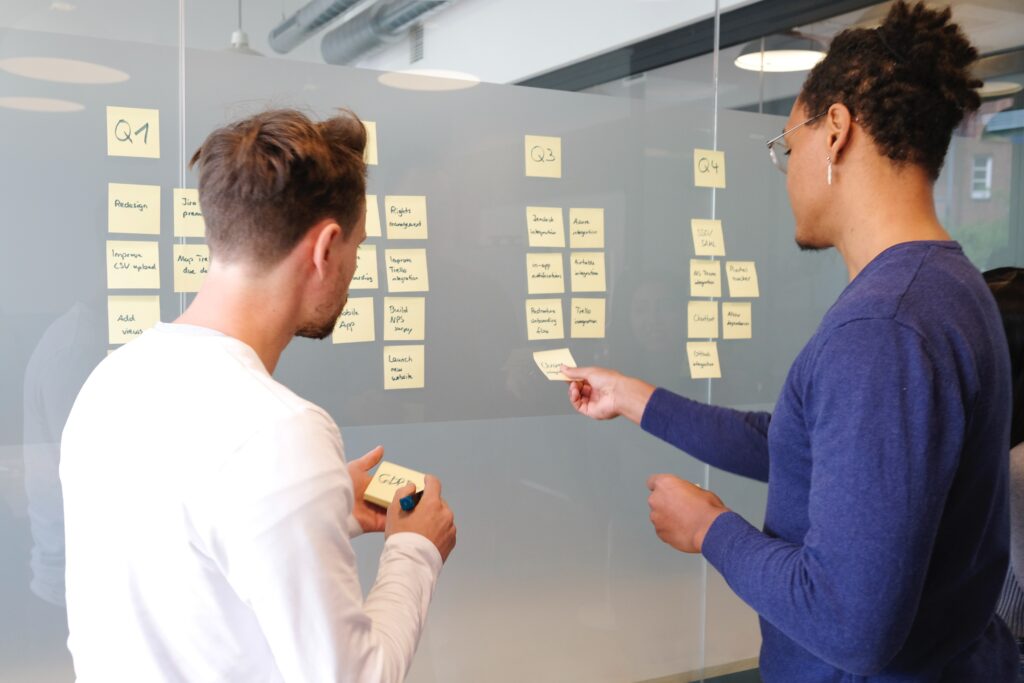What happens at the end of a project or a change process?
Too often, the major players (team members and champions) have moved on to other initiatives and priorities by the time that a project comes to a close. This is a group that has built a lot of insight and understanding of organizational dynamics from its involvement in leading the change, and many organizations miss the opportunity to draw out this learning.
There are a number of benefits from taking the time to host a review, including:
- the team has a chance to review its’ experience and celebrate what it has accomplished
- individual team members can identify insights they can use in their ongoing work
- the organization can draw on lessons to guide how new initiatives will be identified, planned, and implemented
The After Action Review (AAR) is a powerful that allows teams to take stock of their work and draw out relevant lessons.
It can be used in an ongoing manner throughout the change process, and it can be conducted in greater depth and detail at project closure.
There are four question posed in the AAR, and it is best to take them in turn:
- What was Supposed to Happen (the plan)?
- This recap of the objectives and the planned approach is a good anchor on the team’s intention.
- What Actually Happened?
- Invite personal accounts of what took place. Keep the focus on facts, what did or did not took place, and hold analysis of reasons for the next step.
- Why was there a Difference (between Plan and Reality)?
- Explore reasons for why things succeeded, or not. Look beyond obvious, or simple, explanations.
- It can be useful to ask ‘Why?’ several times to look deeper into a factor.
- What will we do next time?
- Identify practical ideas that can be used to improve this or other projects. Ideas can include continuing to do things that enabled your success.
- If you have ideas that can benefit other leaders and teams, share some context with them. Describe why the insight can help address organizational dynamics so they can implement it appropriately.
The practice of conducting AAR sessions provides a rich opportunity for the team’s experience to inform both the practice of other teams engaged in similar work and the efforts of the institution to effectively support teams and deliver high quality services to clients.

